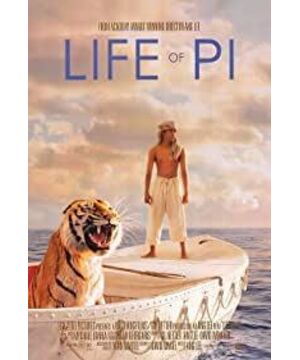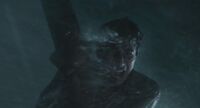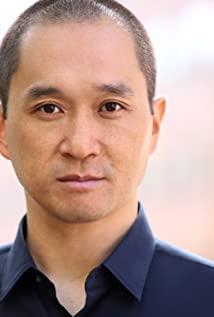This actually reflects certain characteristics of Chinese culture: in my opinion, it is due to the lack of religious background that the Chinese people emphasize emotional ethics and unconsciously reject transcendental thinking-we must find a "solid" realism The soil is willing to give up, otherwise, the whole "Juvenile School" is an unreasonable and unreliable story-for the Chinese with a five-thousand-year tradition of "writing in writing", it means "Youth School" It is impossible to complete the process of encoding-decoding mass culture consumption at all.
Of course, in a "post-modern" context, it is futile to establish a unified text interpretation authority. The aesthetics of acceptance of "a thousand readers have a thousand Hamlet" has been vulgarized into a certain anti-intellectual slogan. , Every interpreter has to make a "political correctness" statement in advance: "This is just a statement from the family"-the author is no exception.
Going back to the text of the film, the author believes that this is a film that is basically loyal to the original novel. The original author Jan Martel also participated in the screenwriting, using the "author theory" point of view. The film "Boy School" should actually be regarded as To "understand" the film of Mattel-Lee's works, it is inevitable to constantly go back to the novel. The combination of the two may be more conducive to the combing of ideas.
The film basically copied the basic structure of the novel. First, it was a large flashback narrative. The author Martel "personally" interviews the adult school with legendary experience; then, under the narration of the school, a syllogistic story unfolds. : Pai’s childhood experience, the fantasy-style drifting on the sea that Pai experienced, and finally the exhibition of the "second version". I was always curious about how Ang Lee would adapt the text of this novel, but later found out that Ang Lee had adopted a clumsy and clumsy way of changing: "No adaptation"-of course there were a lot of detail adjustments, but the basic story structure remained intact, and the fantasy scenes in the book Ang Lee also adopted the almost "means on a narrow road, the brave wins" style of expression-restored through 3D special effects scenes, and fought a solid text-image symbol encounter, challenging the reader's Imagination. It now appears that after experiencing many technical difficulties such as children, animals, water, and 3D, Ang Lee has achieved an incredible victory. Before Ang Lee, 3D, CG special effects and other methods were still used for visual juggling. Spectacular visual scenes are often degraded by the intellectuals as "the metaphysical". After Ang Lee's quenching, these emerging film technologies can already serve deeper themes and films with rich philosophical significance-"literary and artistic films" The dichotomy with "commercial films" is rude, but the rough nature of everyday language has already contradicted the rationality of this dichotomy, so we seem to be full of logical loopholes to say: Starting from Ang Lee, 3D, CG and other emerging special effects Technology has finally begun to serve "literary and artistic films". The common understanding is that “it’s easier to draw ghosts and it’s harder to draw dogs.” It’s actually not difficult to create a completely fantastic world in "Avatar." Diamond diamond (there is absolutely no meaning to belittle the former).
The original book "The Boys' School" won the Booker Prize in 2002. As far as the European and American book market is concerned, to make an inappropriate metaphor, the Booker Prize is a bit like an Oscar, and the Nobel Prize in Literature is similar to the Palme d'Or. Therefore, "Youth School" has long been a bestseller in Europe and the United States. It was translated and introduced into the mainland seven years ago, but it has not attracted widespread attention. Now it seems that the film’s marketing and publicity role is the most important.
The first third of the novel tirelessly confessed the growth of Pai. His birthplace is located in the "local governance" of southern India. Compared with the influence of British colonists, the general belief in Hinduism, the local common language is mainly Sanskrit. As with other parts of India that speak Hindi, the local governance area has been colonized by France for a long time. There are a large number of Muslims, Christians, and Jains. The Tamil population has a relatively high proportion. The Tamil language is more popular—in fact, the The real name comes from a swimming pool in Paris, which shows the connection between middle-class families and French culture.
The reason why the father of Pai decided to immigrate was based on the historical background that during the reign of Prime Minister Indira Gandhi, he implemented a short-term "state of emergency", established a short-term personal dictatorship, and drastically reduced the autonomy of the local government. This history Even known as the "darkest period after India's independence," a faction that was deeply influenced by French-style Western democratic thinking is not difficult to understand.
What’s interesting is that the name "Pai" was chosen by the name of Pi, which corresponds to the Greek letter π for Pi. In the movie, Ang Lee added a section of reciting Pi like a child prodigy, and the original meaning is that π may be full. The most famous irrational number in the world-looking back on Western history, the Pythagoreanists in ancient Greece even killed someone for an irrational number. When Lafjoy summarized the ancient Greek philosophy in "The Great Chain of Existence," "", "Abundant" as its main characteristic, for a person who thinks that the universe is "complete", the π closely connected with the "most perfect" graphic circle actually does not circulate infinitely after the decimal point, which is indeed a bit "irrational." ".
"Unreasonable" has become an important hidden clue. Ang Lee once said when discussing "The Youth School", "We need a narrative, otherwise our life will continue like π"-I think, what it means here Yes, narration has become an important (or even the only) means for mankind to turn the world into “knowable”. It has a hidden meaning similar to Kant’s “man-made legislation for the natural world”-narration must establish causal logic and at the same time ethics of the external world change.
As a result, we see that both novels and movies take the trouble to confess the fact that the faction has converted to three major religions at the same time-Hinduism, Christianity, and Islam. For a "fantasy" movie, these seemingly boring preaching is obviously not idle writing-but for most Chinese audiences, these explanations may not matter.
Hinduism is a religion that Pai has believed in since its birth. History has created Pai’s Hindu beliefs. There is no need to go into details. His views on other religions should actually be integrated with India’s long-standing religions. As early as the "Salmon Trend of Thought" in ancient India, the birth of Jainism and Buddhism, which resisted the caste system and the anti-Brahmanism, had a background of religious fusion. In the modern period of India, the Baur culture flourished. , The rapid spread of Bahá’í and Krishna sects, as well as the discourses of thinkers such as Ramakrishna and Gandhi, all showed strong religious fusion ideas. The idea of "all gods are one god" is not uncommon when placed in the context of the growth of pie-in the novel there is a description of the fact that the pie simultaneously debated with the three wise priests, imams, and philosophers, quoting After Gandhi’s quotations on the coexistence and integration of religions, the debate came to an end; in addition, considering the millennia tragedy caused by the conflict of sects, the religious “inclusive” thinking of the Indian boys obviously also has a certain universal humanitarianism.
The point is that no matter what religion, Pai is unquestioning. To be frank, Pai has already revised the institutionalized doctrines, otherwise his behavior of believing in the three religions at the same time itself contradicts the doctrines of the three religions. After the tragic shipwreck, Pai’s religious beliefs are still strong-here I have to explain: the tiger’s name "Richard Parker" is often associated with shipwreck and cannibalism in Western culture. In 1884 After a British shipwreck, an orphan named Richard Parker was eaten; and in Allan Poe's novel, this name is also connected to the same incident. More importantly, in the novel, Pie reports that he was briefly blind while drifting at sea. During the period of blindness, he unexpectedly encountered another drifting refugee who was eaten by a tiger. After his recovery, Pie only saw Yuanyuan. Although the plot behind it was deleted in the movie, it is not difficult to infer from these grass-snake gray lines that the "second story" is an extreme "tasteful" cannibalism incident, just the details How, it has been impossible to clarify.
The novel deals with the exchanges between the faction and animals, especially tigers. First, it corresponds to the logic of the formation of the same boat with the tiger (the faction masters tiger training skills); second, it can be seen as an echo of a certain ecologicalist trend— -After World War II, a huge trend of ecological theology has emerged in the Western world. As the "Juvenile School" (movies and novels) widely spread in Western popular culture, the faction that believes in the three religions is actually easy to enter as a believer in ecological theology. In the hearts of thousands of audiences. More importantly, in the novel, the author said in the mouth of faction: "I am not trying to defend the zoo. If you want, you can close all the zoos... I know that zoos are no longer liked by people. Religious faces The same problem. Certain misconceptions about freedom have caused both to suffer.” It can be seen that the background of the faction born in a zoo family is not unrelated to religious and theological themes.
As we all know, modern society has gone through a long process of "disenchantment" (Weber). Milan Kundera once quoted Heidegger's pessimistic saying in "The Betrayed Will": "This is how the gods finally left. "To illustrate the unforgettable confusion and loneliness of human beings in the disenchanted world. For Pai, this question has always been a false proposition. The experience of looking back and putting people in an unprecedented extreme situation can actually be regarded as a trial of his heart. From Epicurus and Job to modern atheists, the defense of theism has always existed in the history of Western religious culture. The Western world has always had an ultimate existence—God (in the teleological sense), and the "good" gods endowed with moral attributes always seem to challenge the hearts of believers: with the shelter of God, why is there suffering in the world ? Specifically in "Youth School", it is not difficult for us to ask: Why did the vegetarian teenager with good intentions suffer so much?
In the "Gospel of Matthew", Jesus said "My God, my God! Why abandon me?" It seems that he has never disappeared from the ears of "believers". The faction just restarted in an extreme way. This issue. As we all know, in the process of modernization in the Western world, there was a great wave of enlightenment, which was characterized as the "separation of politics and religion" in social life, through the continuous "grave digging" of sages such as Machiavelli, Hobbes, Spinoza, and Rousseau. , The sacredness of religion is completely deconstructed. As the supreme representative of teleology, religion finally retreats to the private sphere completely (or obtains legitimacy as an ideal form of spiritual chicken soup such as "civil religion" and "rational religion")-Mark Lila named this course as "the dying God", which shows the depth of its tearing influence on the Western cultural context.
The problem is that the effort to dereligion seems to have to resurge in the 21st century. Rawls also revised his "extreme" argument in "A Theory of Justice" in "Political Liberalism", and moral teleology was repositioned In the value spectrum of public life, "public tools" have been vigilant and demonized (the country has become a "Leviathan" monster). The development of modern technology seems to continue to prove the legitimacy of atomic personal "natural rights". According to Traus, we are committed to the "second cave" (a metaphor for Plato's cave) on a vulgar but solid foundation, and nihilism is prevalent, "the white land is really clean", this is why King, where does God hide?
From this point of view, the faction that believes in the three religions at the same time actually appeared as a strange flower, but after experiencing the "purgatory" test-the experience packaged as "fantasy drifting" is nothing more than "The Book of Job" "Contemporary version of the story—God has appeared instead, in other words, belief in God has become the life force of the school, cruel to absurd, extreme to unbearable life conditions, reinfused with meaning by God-the god here should be religion The god in the sense of integration is Allah, God, and Vishnu.
The world after the retreat of the gods is what Holderlin called the "night of the world". Without the ultimate purpose, people can only suffer in fear (Hobbes believes that fear is the birth of religion, Spinoza is It is believed that fear is not caused by religion or superstition). Human rationality alone can only “fight up and down the rain” in a vast ocean of fear, and that fierce tiger can actually be understood as not being “constrained” by God. Human beings themselves-in the specious "second story", Tiger Richard Parker is generally understood as a imaginary personal incarnation.
Pai believes in God, and this has become his ultimate goal and the source of the meaning of Pai's life. Traveling across the oceans from the ancient subcontinent to the New World, and finally found a home-Canada also represents the meaning of spiritual home-here, the story of Pai finally "has a happy ending" (in the novel). Of course, there is some kind of suspicion of western centrism. It seems that India, which is overgrown with beasts (although in the zoo), is backward and closed, and the enlightened, modern, and sunny Western world has formed a clear duality-okay , The home is still in the West.
People always need a home. Berlin once used "feeling at home" to express the texture of nationalist thoughts. The body is at home and the soul must be at home. In the context of religion, God undoubtedly indicates where the "home" is. Looking back on the great history of Entgötterung (Entgötterung), after a period of ups and downs, Westerners suddenly discovered that they must “know the way lost” and return to God. Here, I would rather express it as God walking toward man instead of man walking toward God. As a result, I also expressed the spirit implied in "Youth School" as the following expression: God has embarked on a journey of "homeward".
What's interesting is that the movie "Juvenile School" was written by the Chinese director Ang Lee, who has no religious background. Ang Lee does not shy away from his atheistic background, but he also mentioned the influence of Taoism. From now on, Taoism seems to be the source of thought closest to ultimate philosophical thinking in traditional Chinese culture. Does "Tao" also assume the identity of "God" to some extent? Of course, the meaning of this is complicated and complicated, which is beyond the power of this article.
(Published in the late January 2013 issue of "Literature World")
View more about Life of Pi reviews











